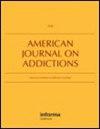Provider–patient relationships and trauma among pregnant patients with opioid-use disorder
Abstract
Background and objectives
The provider–patient relationship is integral to medical practice and health outcomes, particularly among vulnerable patient populations. This study compared the provider–patient relationship among pregnant patients with opioid-use disorder (OUD), who did or did not have a history of moderate to severe trauma.
Methods
This was an exploratory data analysis of 119 patients enrolled in the Support Models for Addiction Related Treatment trial. Probable posttraumatic stress disorder (PTSD) was determined by a score ≥ 31 on the PTSD Checklist for Diagnostic and Statistical Manual of Mental Disorders, Fifth Edition. The provider–patient relationship was assessed at 26 ± 4 weeks of pregnancy using the Kim Alliance Scale (KAS). Multivariable regression was used to examine the association of KAS with probable PTSD among pregnant people with OUD.
Results
The mean KAS score for pregnant participants without probable PTSD (N = 88) was 61.4 (SD ± 2.8) and for pregnant participants with probable PTSD (N = 31) was 59.6 (SD ± 3.7). Results demonstrated significant differences in KAS scores between those with and without probable PTSD after adjusting for demographic variables. Adjusted mean total KAS scores and scores on Empowerment and Communication subscales were significantly lower among those with probable PTSD compared to those without (p = .04 and 0.02, respectively) but did not differ significantly on Collaboration and Integration subscales.
Conclusions and scientific significance
Analyses show an association between probable PTSD and provider–patient relationship among pregnant patients with OUD, with those with probable PTSD having a worse alliance with obstetric providers. This novel finding helps characterize the provider–patient relationship among a uniquely vulnerable population and can inform efforts to integrate trauma-informed practices into prenatal care.

 求助内容:
求助内容: 应助结果提醒方式:
应助结果提醒方式:


